Showing 1-10 of 13 results
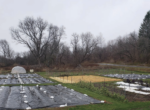
Tarping in the Northeast: A Guide for Small Farms
Reusable tarps, including black plastic (silage tarps), clear plastic and landscape fabric, are multi-functional, accessible tools that are increasingly popular on small farms. The use of opaque materials that block light is frequently called “occultation,” while the use of clear tarps is called “solarization.” The use of the word "tarping” is a general term to […]

Soil Health Principles and Practices Videos
Experienced farmers and Sustainable Agriculture Research and Education (SARE) provide information on managing and improving soil health. Farmers discuss practices such as cover cropping, and using mulch and compost to improve soil health.
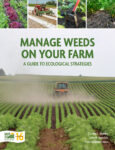
Manage Weeds On Your Farm
Manage Weeds on Your Farm is a definitive guide to understanding agricultural weeds and how to manage them efficiently, effectively and ecologically—for organic and conventional farmers alike.
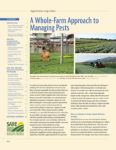
A Whole Farm Approach to Managing Pests
This 16-page bulletin helps producers—and the educators who work with them—use ecological principles across the entire farm to control pests.
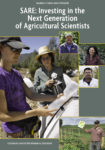
Investing in the Next Generation of Agricultural Scientists
Sustainable solutions to today's agricultural challenges arise when scientists, educators and producers work together to test theories in real-world, on-farm situations. For this approach itself to be sustainable, there must be opportunities for the next generation of agricultural scientists to use collaborative, applied research to address the real-world needs of farmers and ranchers. The SARE Graduate Student grant program is one such opportunity—since 2000, the program has supported the work of 600 master's and Ph.D. students.
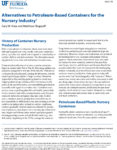
Moving Nursery Producers Toward Sustainable Practices Fact Sheets
These fact sheets discuss alternative containers, marketing and crop selection, alternatives to synthetic herbicides and integrated pest management in commercial nursery plant production.
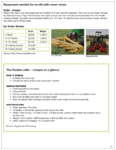
Cover Crops and No-Till Management for Organic Systems
This Rodale Institute fact sheet reviews the use of cover crops and no-till in organic systems, including selection, establishment and mechanical termination of cover crops; crop rotations; and energy and production budgets.

Season-Long Strawberry Production with Everbearers for Northeastern Producers
This 70-page guide outlines profitable production techniques and research on everbearing strawberry varieties, including information on both field production and the use of high tunnels for season extension.
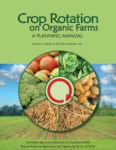
Crop Rotation on Organic Farms
Crop rotation strategies that can be applied under various field conditions for conventional or organic crops to improve soil quality and health, and manage pests, diseases, and weeds
Developing Successful Organic Horticulture Farms: Practical Training for Ag Professionals
A series of Power Point presentations developed for ag professionals on the principles of organic farming, building soil quality, and managing weeds, pests and diseases.